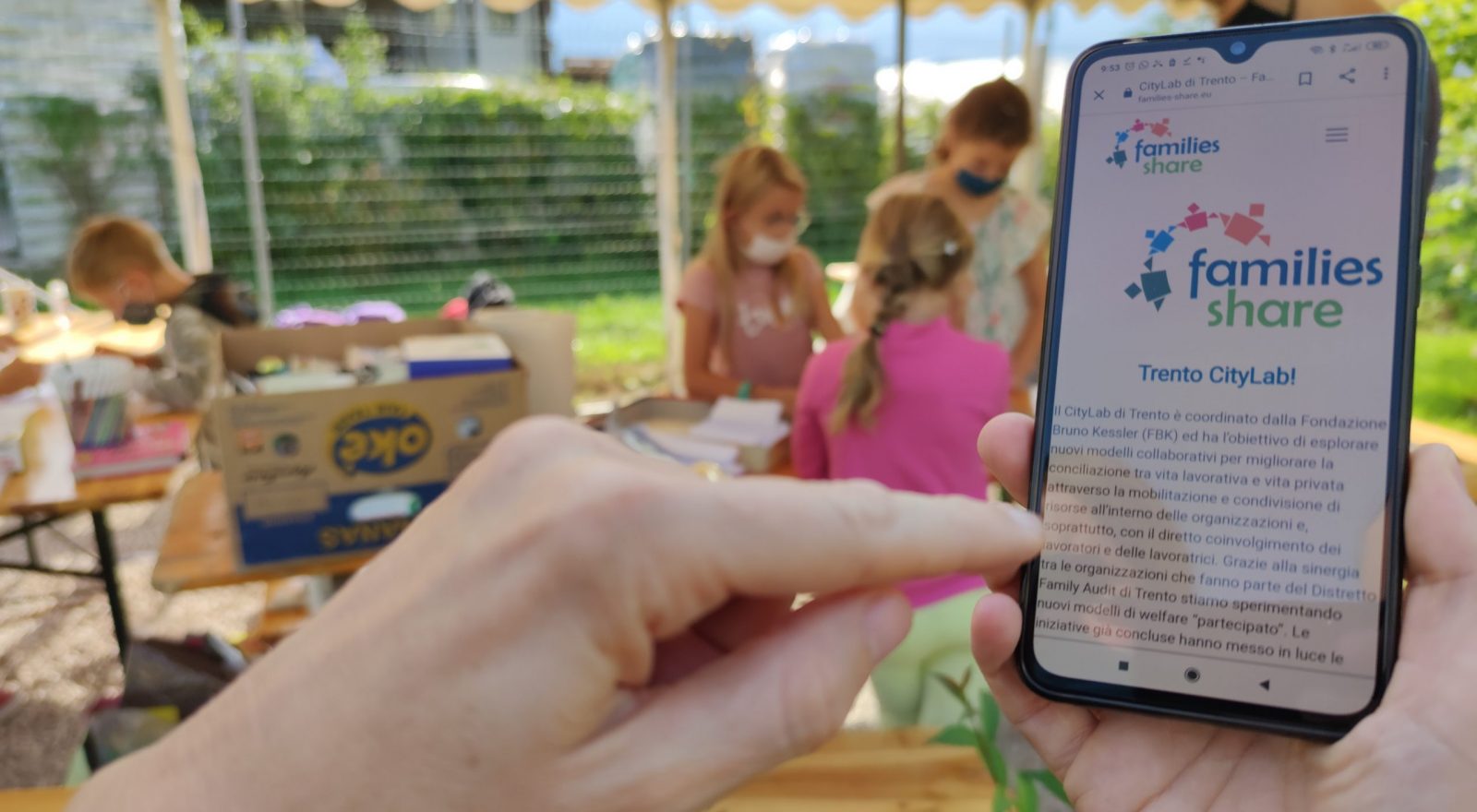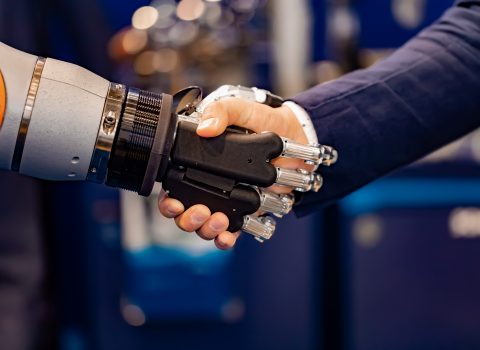FAMILIES_SHARE: technology research to best balance family and work
The FBK experience within the European Families_Share project wraps up with the last activity dedicated to children. An open lab that lasted 3 years in which people, organizations and new technologies have created synergies to co-design community welfare solutions and improve families' private life-work balances
This is the goal of Families_Share, the European project funded under the Horizon 2020 “Collective Awareness Platforms for Sustainability and Social Innovation (CAPS)” program, which aims to create a new “bottom-up and participatory” welfare offer that will complement the traditional one, often unable to ensure full balance between family needs and professional commitments, supporting families with childcare services, especially summer camps and after-school activities, with special attention to low-income families. Fondazione Bruno Kessler is part of the Families_Share project, coordinated by the Ca ‘Foscari University of Venice which aims to study and experiment, together with eight other European partners, innovative work-life balance practices by exploiting the potential offered by new technologies and social networks.
The latest of these experiments is the collaboration between FBK and the Progetto ’92 cooperative, which saw parents and children sharing the spaces inside the Tuttoverde nursery in Ravina, in full compliance with current safety regulations. This way, the children could join labs organized by the cooperative operators, while interested adults had the chance to work remotely from the nursery facilities and contribute to the conduction of the labs. An app, created within the Families_Share project, made it possible to stay up to date on all the news and, above all, allowed parents to manage short shifts set up to support operators in activities and games for the little ones.
The project, which started in 2018 and consisted of 6 City Labs (in Trento, Venice, Bologna, Budapest, Thessaloniki, Courtrai), in fact leverages the concepts of the exchange of time and skills among the participants involved, as happens for timebanks and social streets, with a view to mutual help and self-organized community, enabled by platforms and digital technologies.
FBK coordinates the Trentino City Lab, whose activities are mainly focused on organizations and businesses. “The trial underway in Trento is part of a broader reflection on possible welfare scenarios and sees parents, employees and companies collaborating together for the co-production of childcare services, with a view to sharing responsibilities and of organizational well-being – explains Chiara Leonardi, a researcher with the Intelligence Interfaces and Interaction unit (i3) and joint-contact for the project -. Today the research methods and the potential of new technologies can be integrated with great potential in this scenario, giving life to solutions that can successfully fill the gaps existing today in the traditional welfare system”. The project therefore intends, starting from existing social networks such as neighborhoods and professional networks, to create communities of people who help each other, collaborate and organize themselves in the management of children by creating relationships of solidarity and bonds based on trust. And precisely to facilitate collaboration and coordination between participants, the researchers developed an app: “The application, as well as all the design of the technological infrastructure implemented, is the result of listening and needs analysis that involved hundreds of parents in six cities in four European countries during the first year of the project – explains Gianluca Schiavo, also a researcher with the i3 unit at FBK -. The trust element between the communities of people who participate in Families_Share is critical and therefore the technology we have developed does not intend to replace real social interaction, but to be an enabling tool that allows actors to better manage activities and coordinate in a way that is simple and safe “.
A two-phase project. A needs analysis and co-design to create the technology base and the first activities, which saw the involvement of over 500 people at European level (78 in Trento alone) and the preparation of over 400 questionnaires by company employees, members of the Trento Family Audit District. Again with the participation of FBK, the second phase began, which saw the birth of the first welfare proposals and involved over 500 people in various European cities. During the three years of the project, which led to the creation of numerous labs and camps with scientific-educational activities dedicated to children aged 6 to 13, over 50 families were involved in Trento, with the active participation of parent-workers in synergy with the FBK Human Resources Service and the Family Audit District. Even during the lockdown period, Families_Share’s community of parent-colleagues met remotely to activate workshops to share activities and small experiments with their children. “Networking and the sharing of resources and people between the different realities has made it possible to increase initiatives, extend the number of people and children involved, as well as lower the costs of activities, – explains Massimo Zancanaro, Head of the i3 research unit at FBK – maintaining a high quality of the contents offered. The feedback collected in the project reveals a very high degree of satisfaction on average, even in the other laboratories of the European partners. The hope is to be able to continue working on these models to contribute to the improvement of work-family balance“.


